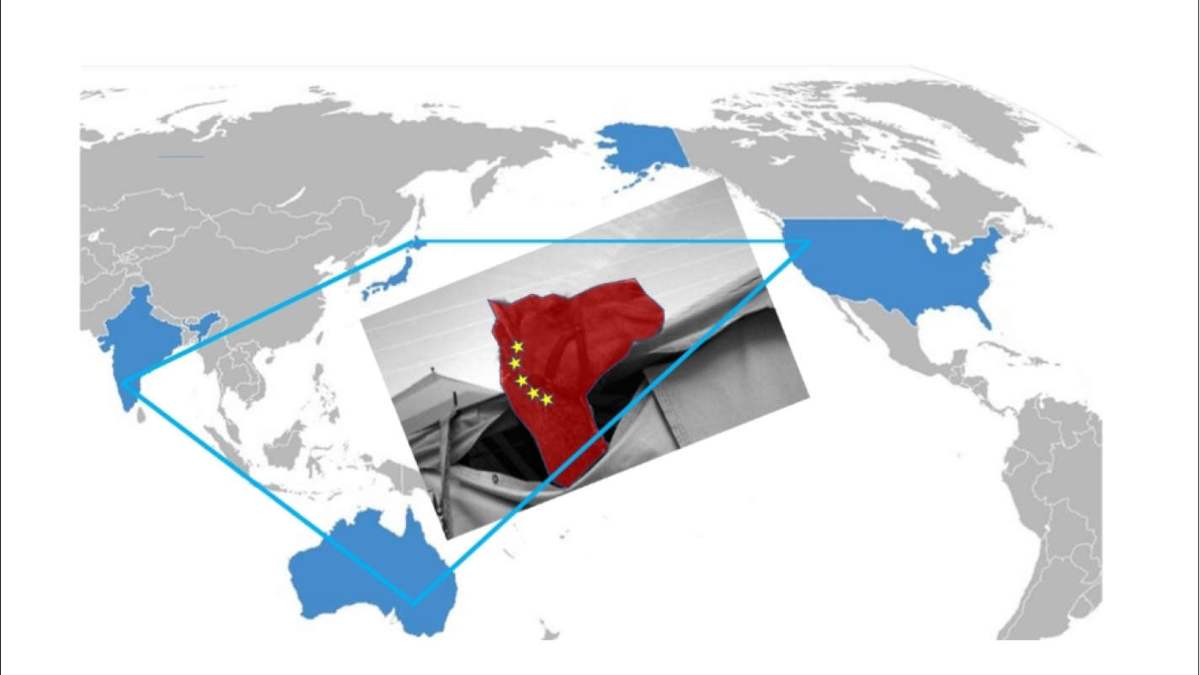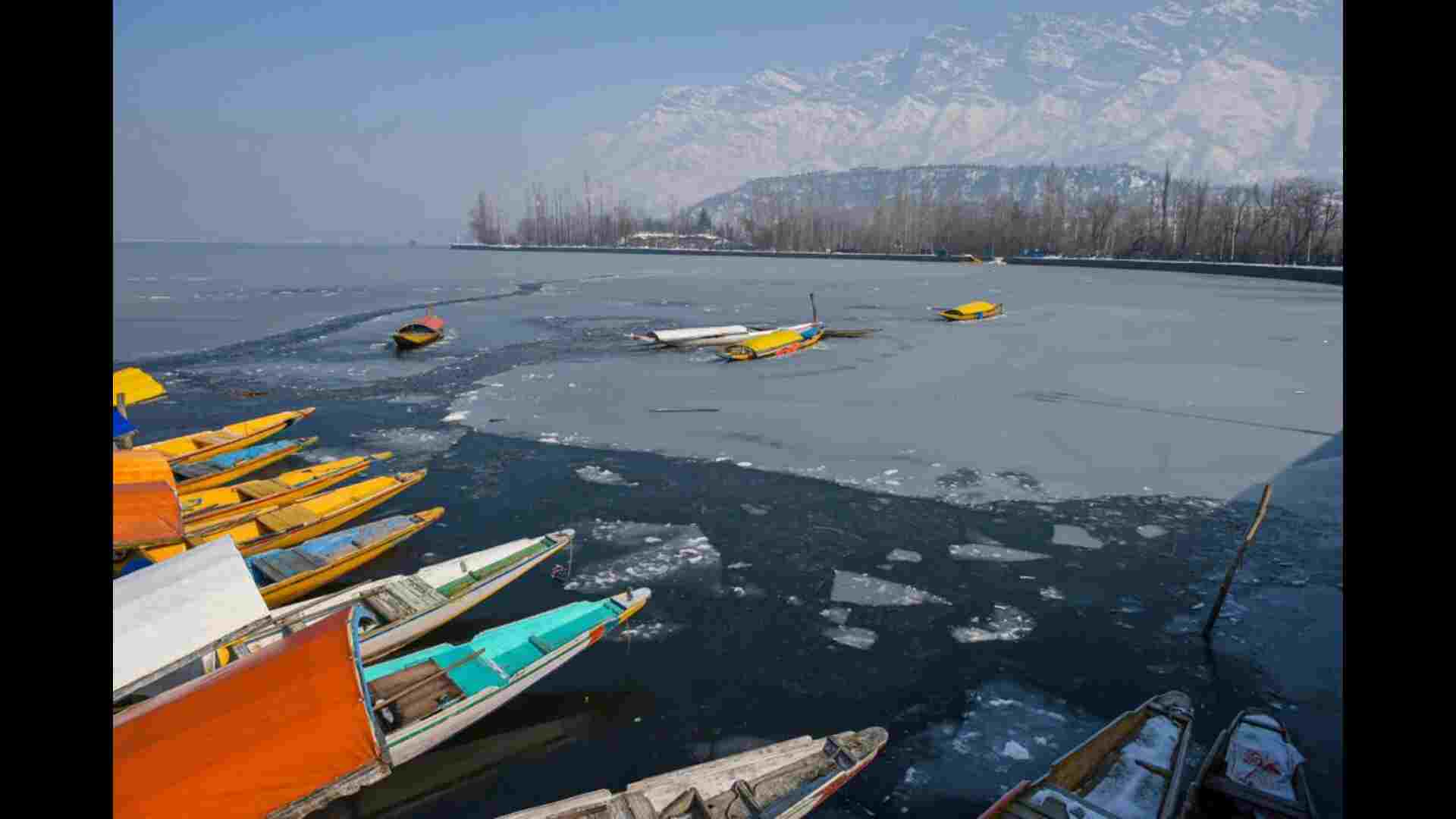Chinese assertion and aggression are steered by Xi Jinping whose personal ambition is greater than the ambition of China and the CCP put together. A ‘China Dream’ and ‘Rejuvenation Plans’ are fine if they are not at the world’s expense. When surreal ambitions reach menacing proportions, they need to be curbed. Hence, the Quad is a global requirement and not an Indian one alone. The US, Japan, Australia and India need to have the sagacity and wisdom of making the hard but correct choices to steer the world out of trouble. From any point of view — they must get their ‘Quadratic’ equations right otherwise the world will enter Chinese Tianxia.
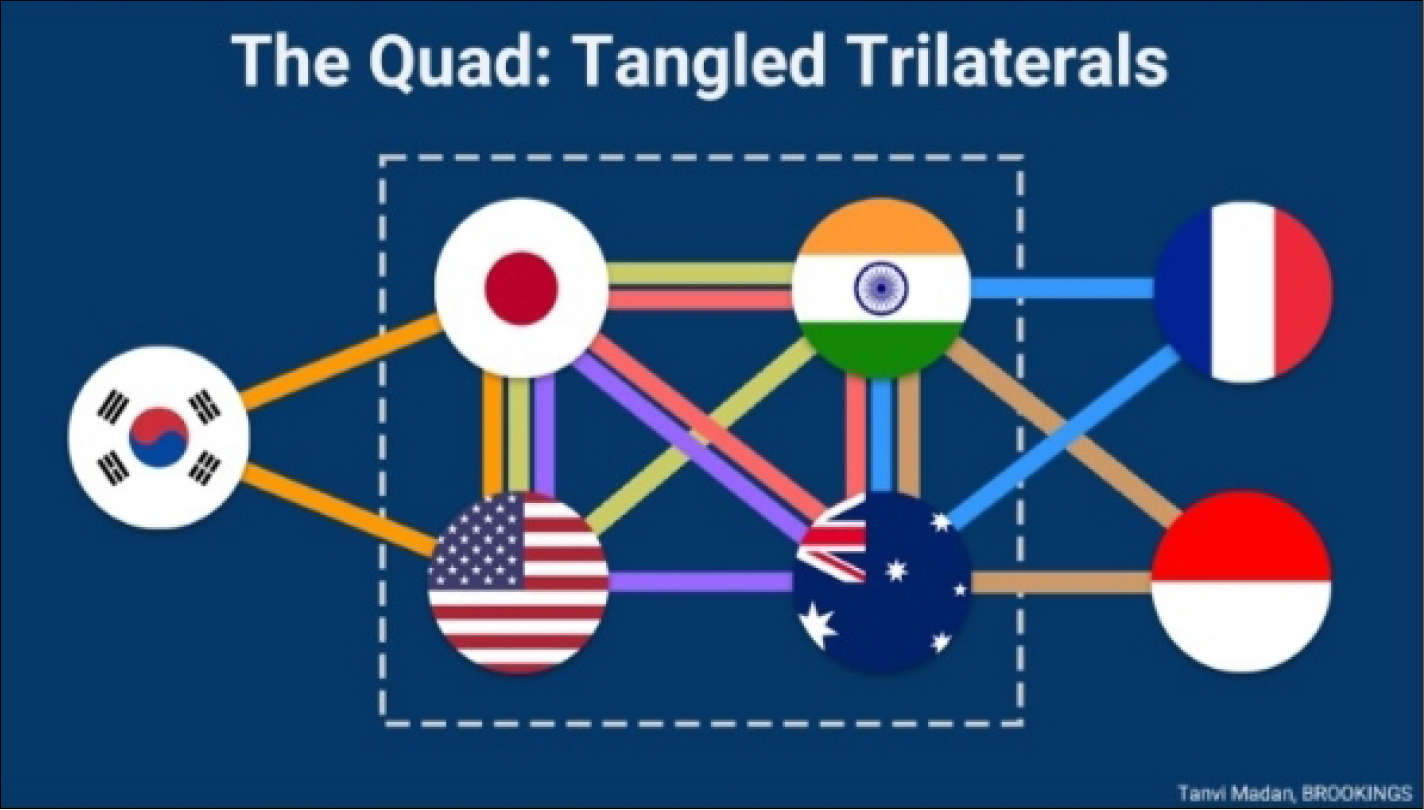
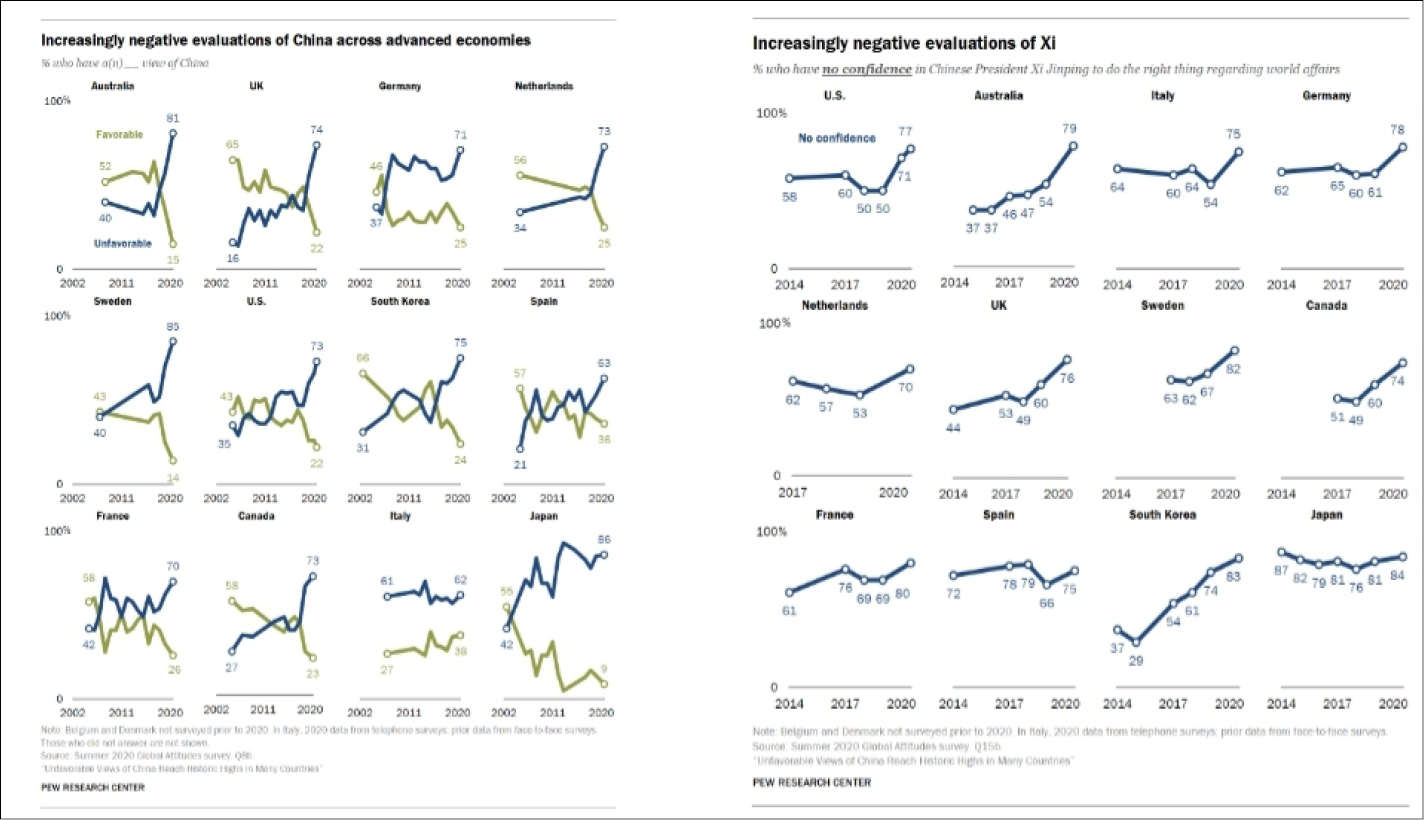
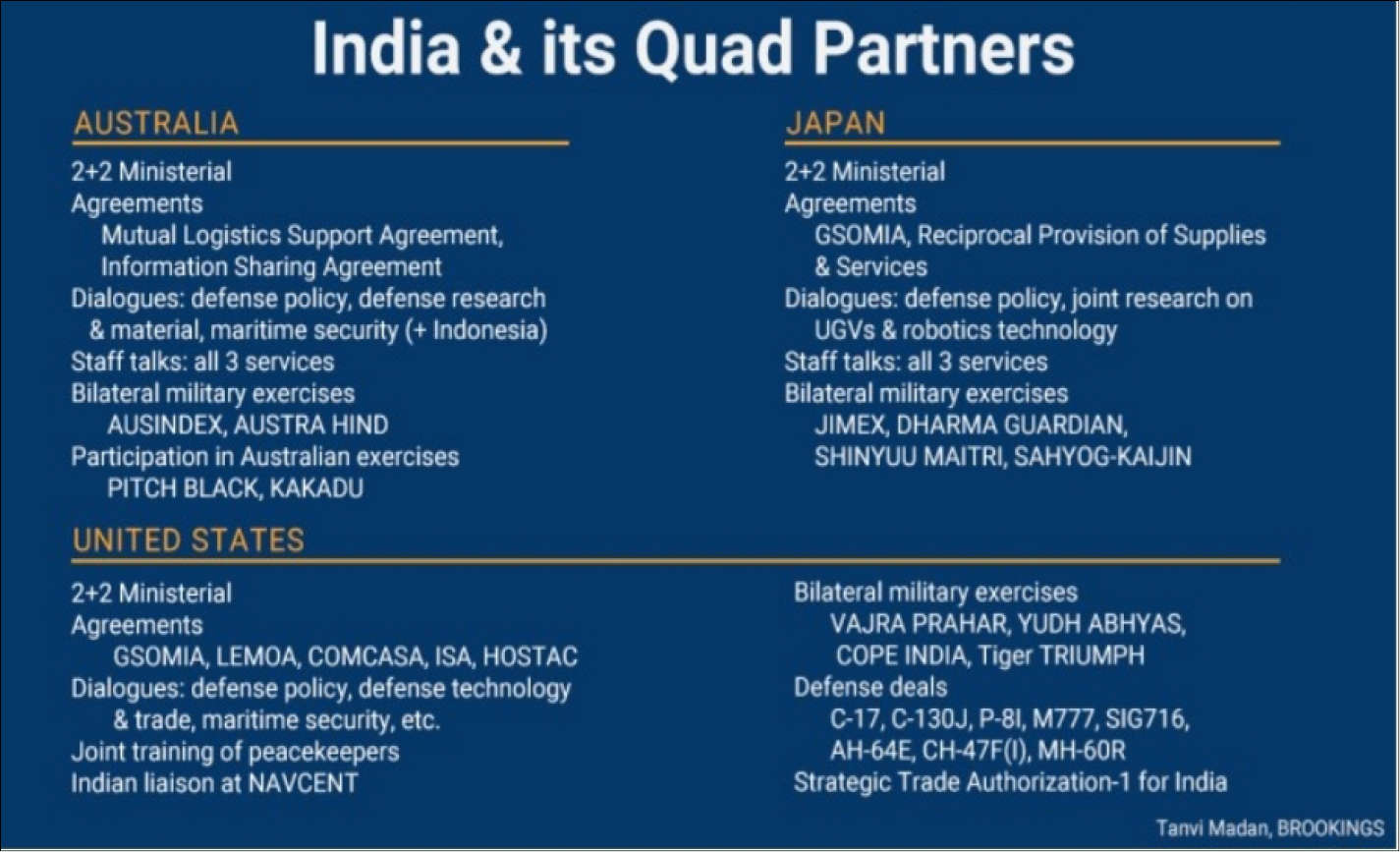
The Tokyo Meet:
The second ministerial level meeting of the Quad nations was held in Tokyo on 6 October 2020 to address the issue outlined above. This is the first time that the foreign ministers of the US, Australia, Tokyo and India met on an exclusive Quad platform. Quad saw its death knell but it has risen from ashes and evolved. From times when foreign ministers met on the side-lines of another event or junior functionaries met to keep the concept going, it is a significant step forward in formalisation of the informal Quadrilateral Security Dialogue.
The Quadratic Consensus:
The general consensus which emerged from the meeting was captured by our Foreign Minister. The Quad nations were batting for a free and open Indo-Pacific region, upholding rulesbased international order, underpinned by rule of law, transparency, freedom of navigation in international seas, respect for territorial integrity & sovereignty & peaceful resolution of disputes. Stress was laid on connectivity and infrastructure development, security including counter-terrorism; cyber and maritime security; and the stability and prosperity in the region. The US was clear that there is a need for the quartet of democracies to resist an increasingly assertive China. CCP›s exploitation, corruption and coercion were specifically targeted. The others were more nuanced without naming China directly but clearly pointing to it.
The Quadratic Ambiguity:
There were no joint statements or a clear-cut way forward or a plan which emerged from the meet. However, it is clear that, despite the ambiguity, members are committed to Quad but want leeway to make their own decisions. It is simplistic to be dismissive about the outcomes. Most importantly, Quad has conveyed intent. The Quad has to be seen in other contexts also. Each country has its own strategic perceptions and compulsions. It will need committed leadership to come to a common cause. Japan has just had a change of guard. The US is heading into a presidential election. The true contours of the Quad will emerge later in the year when the leadership and directional issues gain clarity. Afterall, Quad floundered earlier since the leaders were not enthusiastic.
The Levers of Quad:
There are two levers to turn the wheel of the Quad into the wind. The first lever is the Indian approach to the Quad. The US, Australia, and Japan are militarily, diplomatically and economically integrated. It was widely felt that India is the reluctant partner of the Quad since the elephant comes with baggage. However the elephant is well integrated with the other three through a 2+2 relationship. Hence the fundamentals are in place. (see graphic of Tanvi Madan of Brookings). The second lever is China — the ‘Camel in the Quad tent’. The degree of its assertiveness and aggression is indirectly proportional to the space in the tent which the Quad can afford to give to the camel.
The Camel in the Tents
The Camel in the International Tent:
Pew Research survey indicates a negative view of China in 14 advanced countries which has historic proportions. They believe that China handled the Covid-19 outbreak poorly. Xi Jinping is not trusted. People of these countries do not have confidence in him to do any good for the world. The graphs tell the story emphatically. The fallout needs elucidation. Firstly. China will never be accepted as a world leader. Secondly. Lack of trust in China will have spill-over effects. Eventually people will ensure that advanced democracies decouple from China. Hence its economy is unlikely to soar. Thirdly. If a country and its leader are not trusted by the most advanced countries then imagine what will it be in countries that are debt trapped, coerced, threatened, and expanded into illegally. Hated? Fourthly. What will be the view and effect on its neighbours in land and maritime domains with whom it has issues? Fifthly. China stands isolated. This survey will enhance it. It is a ‘mirror, mirror, on the wall; who is the fairest of them all?’ moment for China. China has a history of being more troublesome when isolated. Some countries can handle the Chinese menace but most might not be able to. There is no one to stop the Chinese camel from entering and upstaging the international tent rudely. This is where the Quad assumes global importance.
The Camel and The Quad:
The Chinese Camel has severe problems with each member of the Quad and wants to enter all tents simultaneously. It has locked horns with India where it has attempted to unilaterally change the LAC by force. Stoutly resisted by India. Both the countries are now mobilised and are in an eyeball to eyeball situation. China is trying to mend fences with Japan while remaining unwilling to give an inch on the disputed Senkaku Islands. Australia has a bitter trade dispute with China. Chinese outlook towards Australia is getting more punitive. The US and China are locked in a multi-domain dispute for world domination with their relationship deteriorating steadily. Irrespective of who becomes the President of the US, the adversarial relationship will continue. China continually signals that it will not shy away from armed hostilities. Military drills, missile test firing, and violating Taiwanese airspace are all Chinese red lines for the US. Chinese assertion and aggression are increasing by the day. It is a greater threat to the Quad and Indo-Pacific countries at large. Of late, China is rationalising being denied its legitimate role at the pinnacle. This dangerous mentality does not bode well. The camel’s greed is way beyond the space in any tent.
The Camel’s Reaction:
The Chinese reaction reads “Instead of forming exclusive cliques, multilateral and plurilateral cooperation should be open, inclusive and transparent”. China sees the meeting as a formalisation of an US led alliance. It assesses that in the recent past, the vague concept of Quad has evolved into a political and military bloc against China. It also knows that the Quad has strengthened in response to its intimidatory actions. It has also registered that in addition to the Quad nations, France and Germany have also announced their own Indo-Pacific policy guidelines/strategy. The fact that the Quad plus consisting of South Korea, New Zealand and Vietnam is also on the horizon is not lost on the camel.
The Ponderous Indian Elephant
The Elephantine Pivot:
The seemingly ponderous Indian elephant has done a quick pivot towards the Quad. In addition to what our foreign minister said earlier, he has also mentioned that the world is significantly different than what it was when the foreign ministers last met in New York in September 2019. He spoke of vibrant and pluralistic democracies with shared values and the imperative for likeminded countries to coordinate responses to the various challenges that the pandemic has brought to the fore. He also sought collective solutions to global challenges as India assumes membership of the UN Security Council next year. He said it all.
The Elephant’s Stand:
One thing is clear. China and India will be neighbours but never friends. The Elephantine memory of Chinese treachery is rekindled. The animosity and distrust of 1.4 billion Indians which China generates will put the Pew Research survey into insignificance well into the next generation. Never have I seen such emotion. China aggravates it with new and increasingly unreasonable stances on the LAC, insistence on the 1959 Green Line of Chou En-lai and not recognising the UT of Ladakh. India has had the gumption and guts to poke China in the eye. If there are two countries which can hold China down militarily, it is India and the US. The military push back started in Doklam and has intensified in Ladakh. It has also led the way by taking up cudgels on economic and digital fronts. India has repeatedly stayed away and even criticised major initiatives of China — BRI and CPEC, RCEP, Made in China 2025, etc. India has been in the forefront of exposing Chinese debt trap diplomacy. It has often expressed concerns about China’s BRI projects and moves in Bangladesh, Maldives, Myanmar, Nepal, Sri Lanka, and the broader Indian Ocean Region. I doubt if things can get more explicit.
The Elephantine Baggage:
Admittedly, India has a lot of baggage to carry. The extent of the pandemic and the economic fallout places limits on India. However, for this very reason, it must go along with the Quad. Indian socialistic strain and nonAlignment mentality has not evolved with time. Its dependency on China will be a drag despite conscious efforts to reduce the trade deficit. India has to balance out its historic relationship with Russia, which is seen as an adversary by the US. Then there is the matter of its relationship with Iran. Its relations with its neighbours are fraught, including with a toxic Pakistan. India needs to rethink to handle the BRICs, RIC and other multilateral arrangements. Many want India to free up and be open to trade and investment. As the Chinese camel exits the Indian tent there will be room for others if the supply chains get relocated. The issue needs a review with mutual benefit for India and the Quad partners. An issue which India is wary about is the limits it can go with the US as a partner. Historically the relationship has not been great, though it has changed in the past decades. There is also a distinct feeling in India, and rightly so, that when the chips are down, it will have to do its own weight lifting.
Indian Requirement:
India adopted a development path so far. That path appears obliterated in the post Virus domestic and global environment. India has to change course to reach its futuristic goals. It has to decide which way its chips are going to fall. If it has to be a power of reckoning and uphold its constitutional values of democracy, it must unequivocally go along with the Quad and other democratic forces while developing its own capabilities. At the same time, it is for other Quad countries to understand that there are two parts to the Indo-Pacific construct. Indo and Pacific. The Indo part has two further dimensions — land and maritime. Some of the commentary emanating from the US and others seems to focus too much on the Pacific and maritime part. If half of PLA is sitting on top of your head at Ladakh, you cannot sail into the deep blue Pacific Ocean for maritime glory like Don Quixote. A realistic, holistic and balanced approach is needed.
The Shape of Quad
The Quad Questions:
In 2019, former Australian PM Kevin Rudd had posers to this effect: Was this a regular exchange of views on the strategic shape of the region among officials? A defence and/or foreign ministerial forum to do the same? A mechanism between these countries› militaries to go considerably deeper than that by planning countermeasures against China? Joint naval exercises against China-related contingencies? Or ultimately some form of a mutual defence pact? Or as is more likely, a strategy of graduation from one level of strategic cooperation to the next over time?
Shaping the Quad:
Very clearly the Quad is a work in progress. Will it be an alliance or an alignment? Will it evolve into a mutual defence pact? At this point it is speculation. Let it evolve. Importantly, it should expand into a multidimensional forum encompassing DIME pathways (Diplomatic, Informational, Military and Economic). The strong linkages existing already between Quad partners should be leveraged. A few random thoughts. The easier dimensions to execute are Diplomatic and Informational. These will force an immediate rethink on China. However, the most important dimension is the Economic one. The Supply Chain Resilience Initiative of Australia, Japan and India must be adopted by Quad and progressed on fast tracks. Steps need to be initiated to counter Chinese economic coercion and undermining the rules-based order. Quad must fund infrastructure projects strategically to block China gaining control of key areas. Hard and soft power can bolster capacity of small states in South Asia, Southeast Asia, those in dispute with China (Vietnam, Philippines), island states in the IOR (the Maldives, Mauritius, the Seychelles) and the South Pacific (Vanuatu, Fiji, Papua New Guinea, Solomon Islands). There is considerable scope for joint R&D. The military pathway is the least important at this stage. Militarily, it is important to arrive at an understanding of joint capability, interoperability, communications, logistics basing, intelligence, surveillance and reconnaissance capabilities, coordinated power projection, joint development of defence technology and setting up some common standards. From an intelligence perspective the Five Eyes architecture can be built upon. It is significant to note that between the time the Quad was conceived to now, many bilateral and trilateral relationships have developed. These engagements have broadened over time. These can be leveraged into the Quad very easily and more can be added. This diagram by Tanvi Madan of Brookings says a lot.
Quad Potential:
I have written earlier that Quad consists of a superpower and three middle level powers, four vibrant democracies comprising three civilisations — Western, Japanese, and Indian and three of the top five economies. It is a healthy mixture of raw material, manufacturing, and consumer power with tremendous innovation capability. Quad can enforce decoupling from China and create alternative markets. South Korea, Vietnam and New Zealand and the EU will come aboard if Quad can provide leadership. Quad has tremendous military potential. The US and India have strong and experienced armed forces. Combined with forces of Australia and Japan, it will be an overmatch for China. Contrary to popular imagination, these countries need not even come to each other’s direct aid. A coordinated synergised multidirectional threat/application of force is adequate.
Conclusion
Some time back China had said, very dismissively, that the Quad will dissipate like the sea foam. However, the contrary has continued to happen. As China continues with its unreasonable outlook, the shape and form of the Quad will crystallise. The likelihood of others joining is large. The US presidential elections will give time for reflection and thinking for all Quad partners. After that, the true form will emerge. Democracies take their time. However, once they decide a course of action, they have the strength to take it to logical conclusions. I doubt if China will be allowed to get away with it. We do not need Tianxia. We need to get our Quadratic equations correct. Lastly. The Camel is real. The Dragon is mythical. That is why I have chosen to describe China in realistic terms — the camel it is.
Lt Gen P.R. Shankar was India’s DG Artillery. He is highly decorated and qualified with vast operational experience. He contributed significantly to the modernisation and indigenisation of Artillery. He is now a Professor in the Aerospace Dept of IIT Madras and is involved in applied research for defence technology. His other articles can be read on his blog www. gunnersshot.com.

